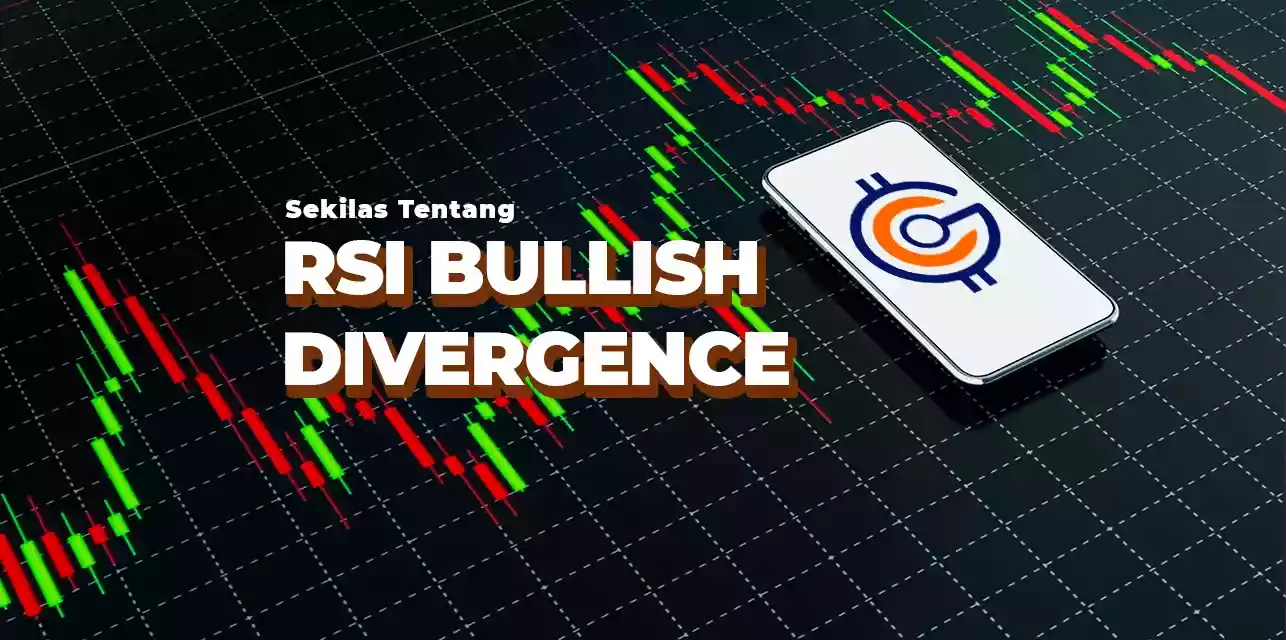RSI Bullish Divergence is often encountered by traders when trading. Here GIC will discuss its characteristics, requirements, examples, how to read it, and what are its advantages. For more information, you can read the following article. In addition, you can also read other articles such as Double Bottom Pattern: Characteristics, Requirements, How to Read, and Examples.
What is RSI Hidden Bullish Divergence
- RSI Hidden Divergence is a very powerful predictor of trend continuation or trend change.
- There are crazy amounts of divergences happening on all time frames. Find one, wait for price to test it, find your desired re-entry price, confirm with other tools in your technical toolbox and then trade.
- Bullish RSI Hidden Divergence only occurs in an uptrend and the trend will continue to rise. While Bearish hidden rsi Divergence only occurs in a downtrend and the trend will continue down.
- For swing trading, there is no need to carry the position for a longer period of time. Usually swing trading should be between 15 to 20 percent and then you can book your profit.
- Do not risk more than 1% of your capital until you have mastered this strategy.
RSI Hidden Bullish Divergence Pattern Characteristics
To start looking for divergence, you first need to see if the price action has made a higher high or a lower low. It can be helpful to draw a line on your price chart to see if this has happened. For example, in the price chart below, we can see that the price has made a lower low.

Once you’ve connected the two bottoms with a line, you can use your chosen indicator to see if the price action is diverging from your technical analysis tool. The only parts of your technical indicator you really need to focus on here are the tops and bottoms, just like your price chart – so it can be helpful to draw trendlines on your indicator as well.

From the chart above, we can see that the technical indicator – in this case the stochastic oscillator – has not yet reached a lower low. This means that there is a bullish divergence, as the downward momentum is weakening and could soon reverse to the upside. It is important to note that if you end up missing the divergence, and the price has already reversed, you should not rush into a position. In fact, it would be a good idea to look at a longer timeframe and gather data on how the market behaves after the divergence before you enter a position.
- Having a chart with only two variables to contend with is a critical component in spotting divergence. It is possible to detect it using an indicator such as the Relative Strength Index (RSI).
- Pay special attention when the RSI shows a trend reversal, such as moving from a downtrend to an uptrend.
- Divergences, such as market highs following market tops, should be on your radar once you have identified the correct areas on the chart.
- Recognizing different price actions that may cause divergence is important for traders.
RSI Hidden Bullish Divergence Example
BUT BE CAREFUL!

From the graph above we can conclude that:
- Trend: There is a clear price trend structure, higher highs and higher lows.
- Time Frame: Daily chart for swing trading.
- Sign: RSI Hidden Bullish Divergence is just a sign to take a long position.
- Trigger: Start buying on dips to previous lows. This presents a better Risk-Reward ratio.
- Stop Loss: Latest lowest price.
- Risk: Do not risk more than 1% until you have mastered this strategy.
How to Read RSI Hidden Bullish Divergence
Before trading Hidden Divergence, here are some rules to follow:Rule 1: Look for the “Four Price Scenarios”
For Hidden Divergence to exist, the price trend must form one of the following:- Low is higher than previous low
- Lower high than previous high
- Double Top
- Double Bottom

Pola double top dan double bottom. (Sumber: BabyPips)
Rule 2: Only Connect Lows for Hidden Bullish Divergence
For bullish divergence, connect the lows in the price action and also the lows on the indicator. As shown in the image below, the lows on the price chart should line up vertically with the lows on the indicator.

For Hidden Bullish Divergence, vertically align a connected higher low on the price chart with a connected lower low on the indicator. (Source: Phemex, TradingView)
Rule 3: Only Connect Highs for Hidden Bearish Divergence
For bearish divergence, connect the highs on the price chart and do the same for the highs on the indicator. As shown in the image below, the highs on the price chart should line up vertically with the highs on the indicator.
For bearish Hidden Divergence, align the lower lows vertically on the price chart with the higher highs connected on the indicator. (Source: TradingView)
Rule 4: The Gradient of the Line Indicates the Strength of the Divergence
As mentioned in Rule 1, divergence can only exist if there is an upward or downward slope in the price trend or in the indicator. The steeper the slope, the higher the probability of a price reversal or the opportunity to profit.Rule 5: Don't Double Down on Divergences
Trends don’t last forever, and it’s smart to trade divergences as soon as they appear. If a divergence is seen, but price has reversed and is quite far from the recent swing high/low, then be patient. It’s best to wait for the next divergence.Trading Benefits Using RSI Hidden Bullish Divergence
Here are the advantages of trading using RSI itself. These advantages are:- Easy to understand.
- Every now and then they give good signals that warn of a change in trend strength.
- Works in any market and time frame.
After learning about RSI bullish divergence, you can learn about other patterns related to this RSI bullish divergence. In addition, you can also register to be able to trade with a minimum capital of 150,000 rupiah!
 Last:
Last: 







